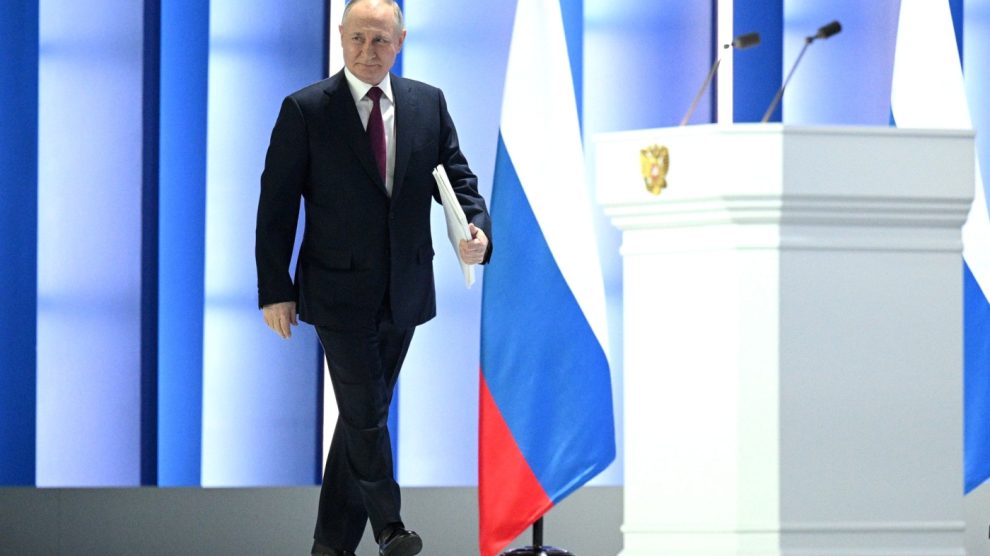The numbers are in. A new policy brief by the European Council on Foreign Relations shined a light on how the Russian invasion of Ukraine, one year on, has brought out diametrically opposed global attitudes on war, the idea of democracy and the composition of the future international order.
- “United West, divided from the rest: Global public opinion one year into Russia’s war on Ukraine” takes into account multiple polls and datasets relating to ten European countries as well as China, India, Turkey, Russia and the United States.
Executive brief. Western countries (the US and European countries) are more consolidated than before and have reasserted their preeminent role on the global stage. They “agree they should help Ukraine to win, that Russia is their avowed adversary and that the coming global order will most likely be defined by two blocs led respectively by the US and China.”
- In contrast, people in non-Western countries (China, India, and Turkey) prefer a quick end to the war even if Ukraine has to concede territory. They, as well as Russians, “also consider the emergence of a multipolar world order to be more probable than a bipolar arrangement.”
- Consequently, the gap between the West’s perspective and that of the rest of the world has widened.
Italy stands out as a laggard among Western countries. Only 39% see Russia as an “adversary” and 15% as a “rival,” while 23% consider it an “ally” who shares interests or a “necessary partner” with whom it’s best to cooperate strategically.
- In other Western countries, a large majority (77% in the UK, 71% in the US and 65% in the EU-9) see Russia as an “adversary” or “rival.”
- Also, only 15% of the interviewees in the other 9 European countries (14% in the US and 8% in the UK) deem Moscow an “ally” or “necessary partner.”
What’s up with EU? A large number of Europeans (an average of 55% in the nine EU countries where the survey was conducted) are in favour of sanctions against Moscow, accepting any negative consequences for their country’s domestic economy, while only 24% are in favour of using energy supplies from Russia.
- Also, 36% of Americans agree that the main reason for supporting Ukraine is to preserve its democracy. Only one in five in the UK and one in six in the nine EU Member States are of the same opinion. As for Italians, only 10% agree – and just 9% believe the main reason Europe supports Ukraine is to defend its territorial integrity.
Elsewhere than the West, these positions are not commonplace. In fact, the ECFR report shows that many citizens in China (76%), India (77%) and Turkey (73%) not only believe that Russia’s strength is not in question but also see it as a strategic “ally” and “partner” (79%, 79% and 69% respectively). They also believe that Ukraine should consider surrendering its territory to hasten the end of the conflict.
- This divergence of opinion between the ’West’ and the ’rest’ of the world suggests that the dominance of the United States over the international order is diminishing and that competing powers, identifiable as democracies and autocracies, will have a greater say in the coming years.
- The emergence of these powers finds confirmation in Turkey’s role as mediator between Kyiv and Moscow on the Black Sea grain export agreement and in the intense economic relations between India and Russia, positioned alongside Australia, Japan and the United States in the Quad.
The expert’s (quick) take. “The paradox of the Ukraine war is that the West is both more united and less influential in the world than ever before,” quipped Mark Leonard, co-author of the report and director of ECFR.
Still, the Italian government is West-aligned. Yesterday, the Italian Prime Minister travelled to Kyiv to meet with President Zelensky and manifest Italy’s steadfast support for its resistance against Russia. “Italy does not intend to waver and will not do so,” she said alongside the Ukrainian President during the ensuing presser.
- Rome, she promised, “will give every possible assistance so that the conditions for negotiations can be created, but until then, it will give every kind of military, financial and civil support”, stressing that “whoever is supporting Ukraine, even militarily, is working for peace.”




